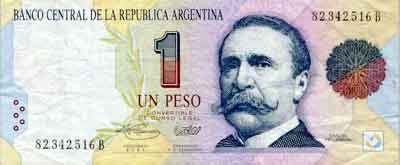Sheesh sorry about the delay. Way too many things getting in the way of my mindless chattering on the web.
OK so you're totally right about QE not technically being printing, but printing both in the OECD and here is a lot more complicated than we're making it here. Even Bernanke's response as to whether QE is printing money was "sort of". So we can either go into this long tangent or I could just withdraw the comparison, which would probably be better for sticking on topic.
So let me rephrase then: Argentine inflation is a result of excess aggregate demand. There are monetary factors that can aggravate or improve it, but the root issue is demand. For me, personally, what is most important is employment and real median household wealth, and in general I would be against any economic policy that would hamper them. When you talk about cutting government spending, yes that will cut inflation, but my first concern would be what effect that would have on unemployment, which Argentina's history in the 90s has shown to be intimately connected. Basically, the only solution Argentine politicians have come up with in the past for lowering inflation has been to raise unemployment (e.g., Rodrigo, Cavallo). I'm trying to come up with another solution, to work on a way to ease inflation down without the austerity.
If you have another way to prioritise employment and cut public expenditures I'd be all ears.



